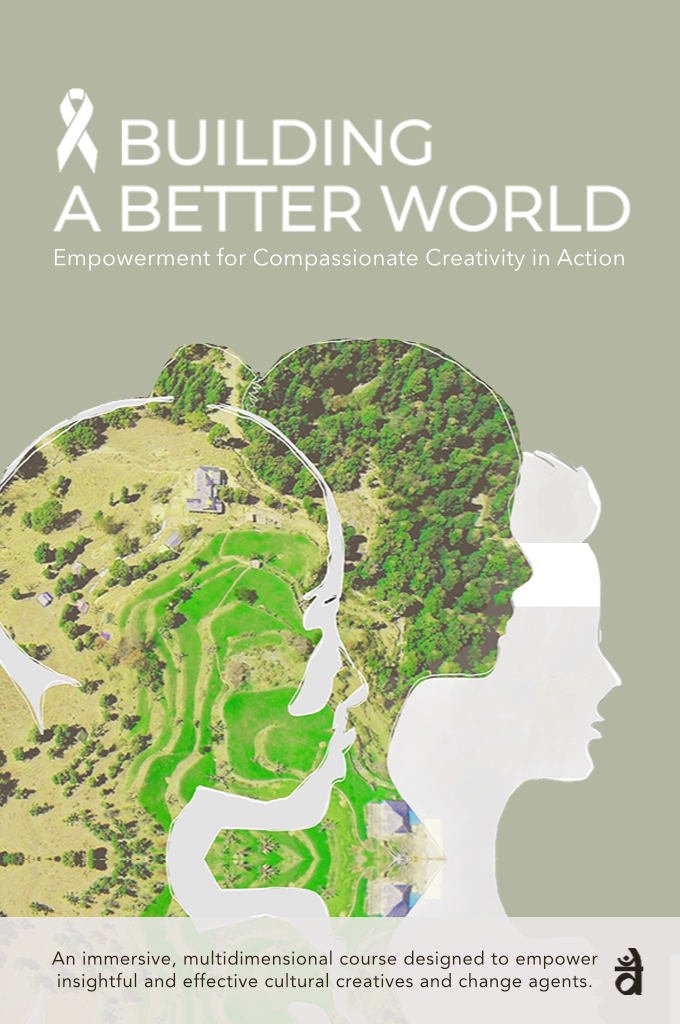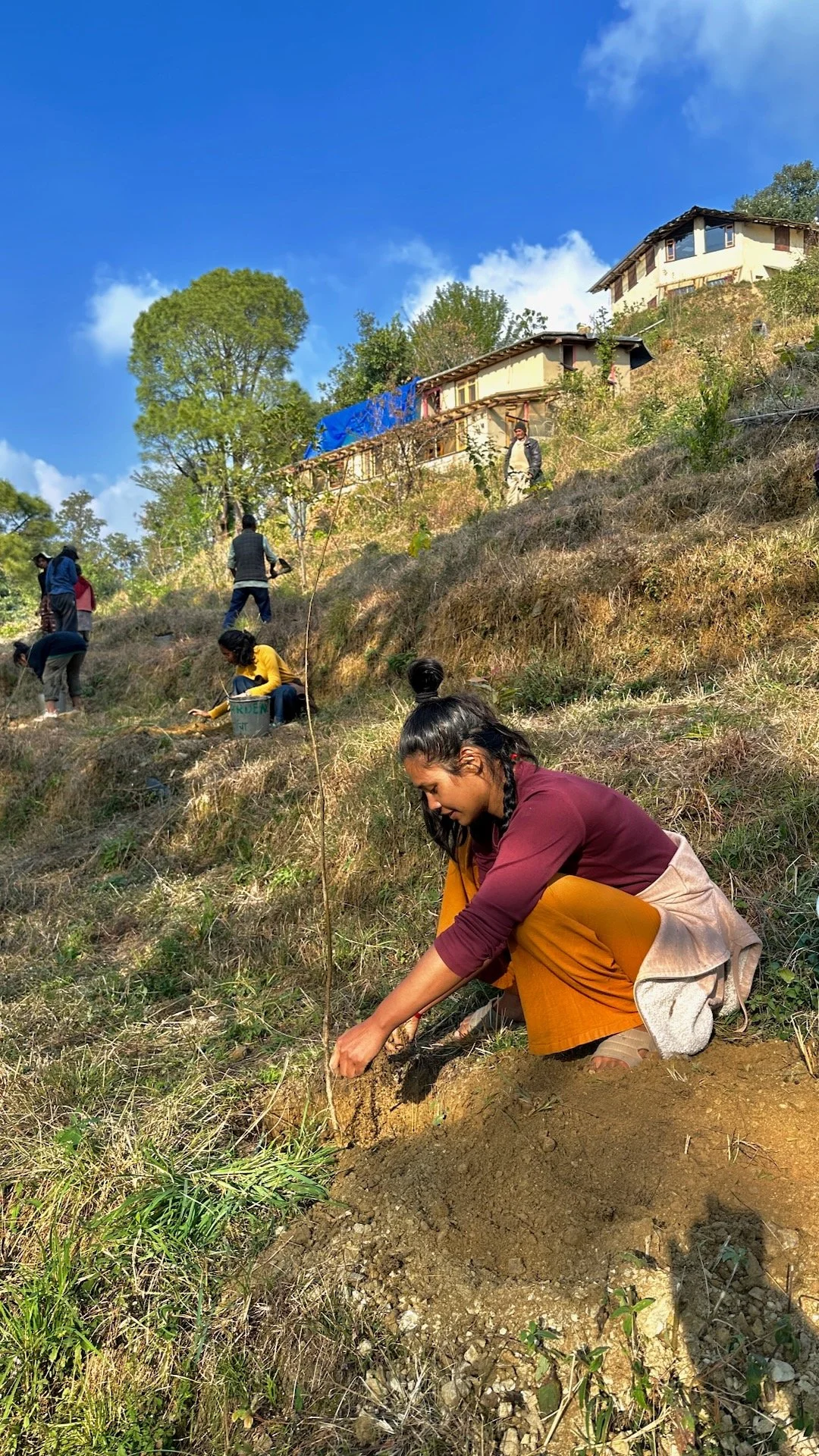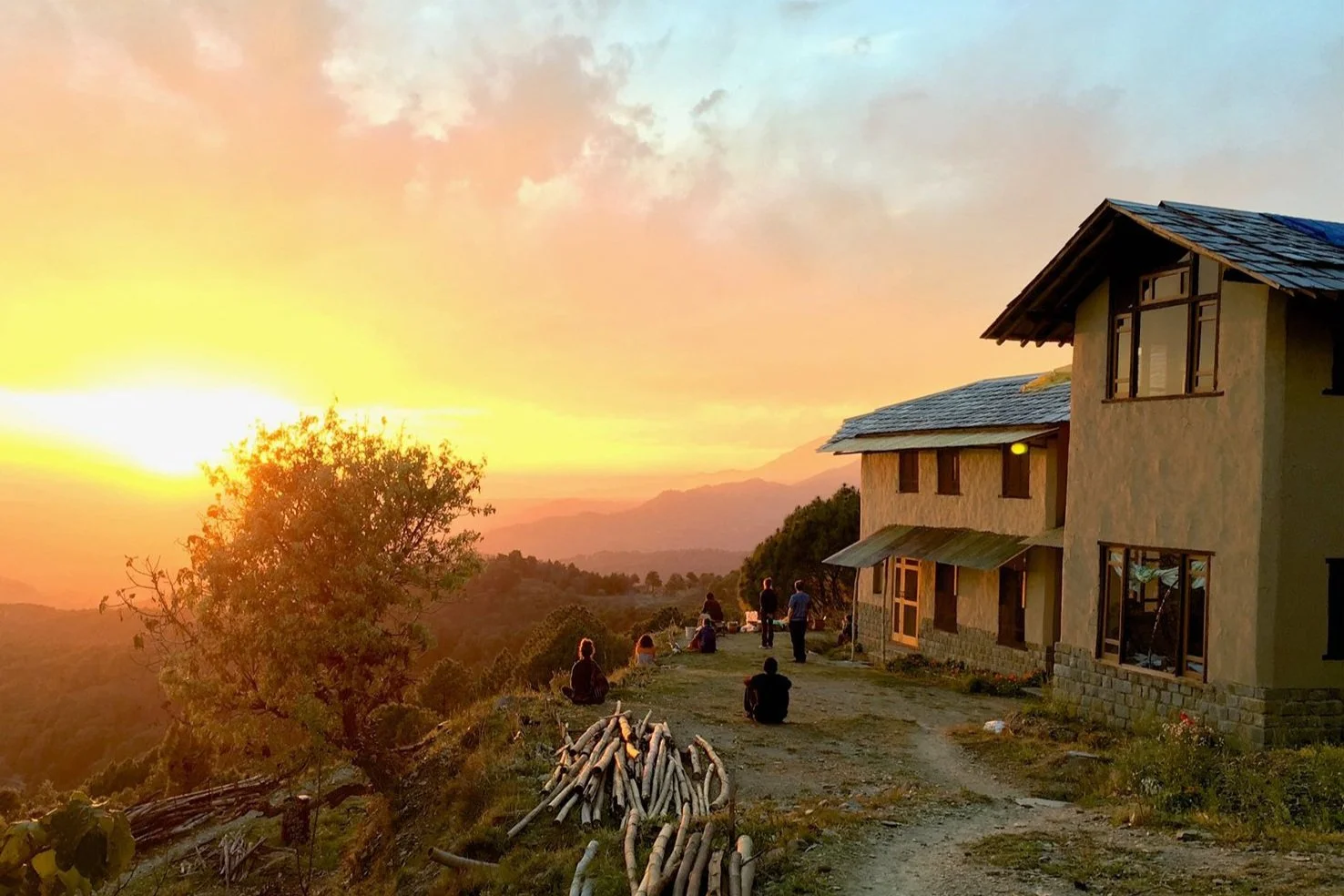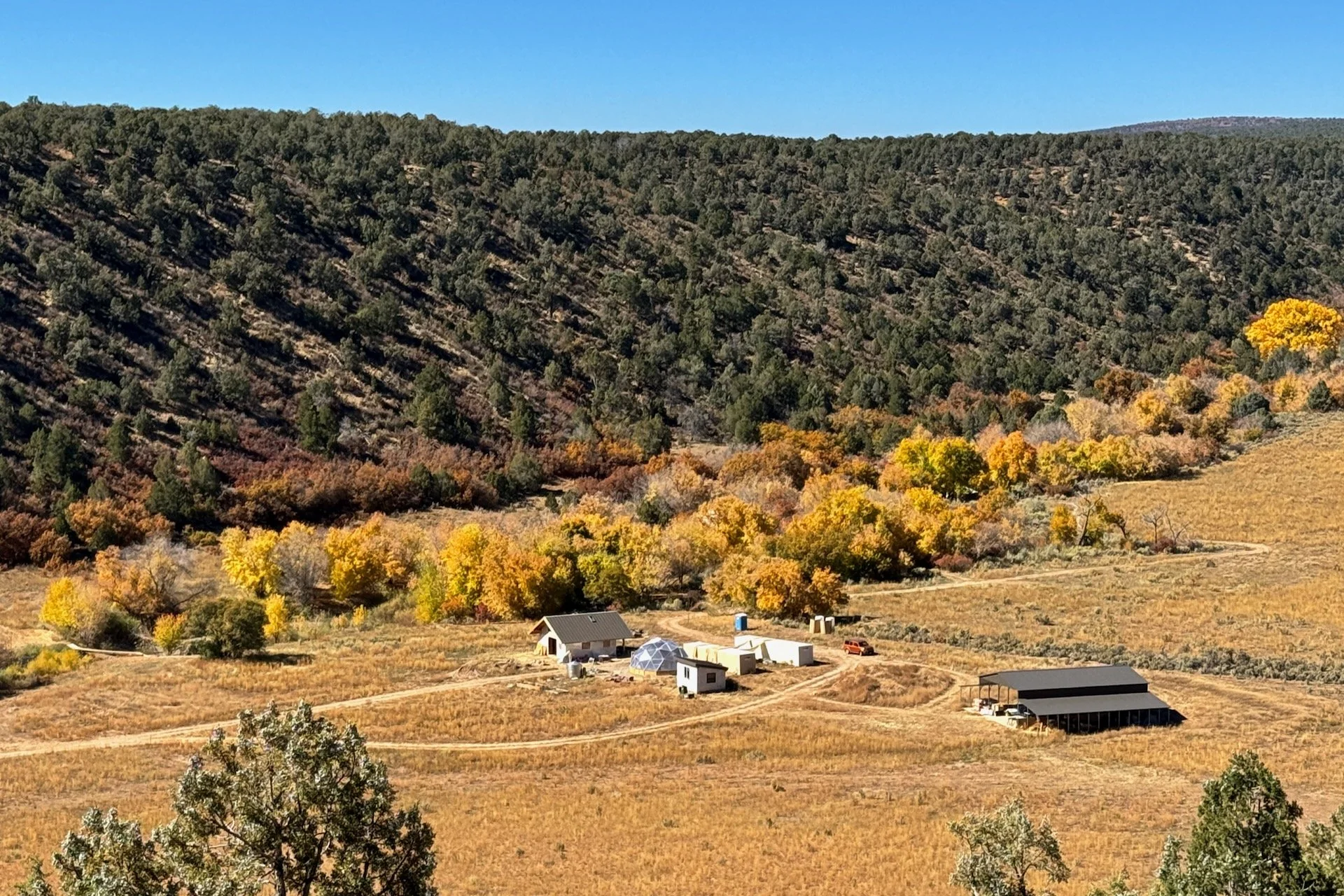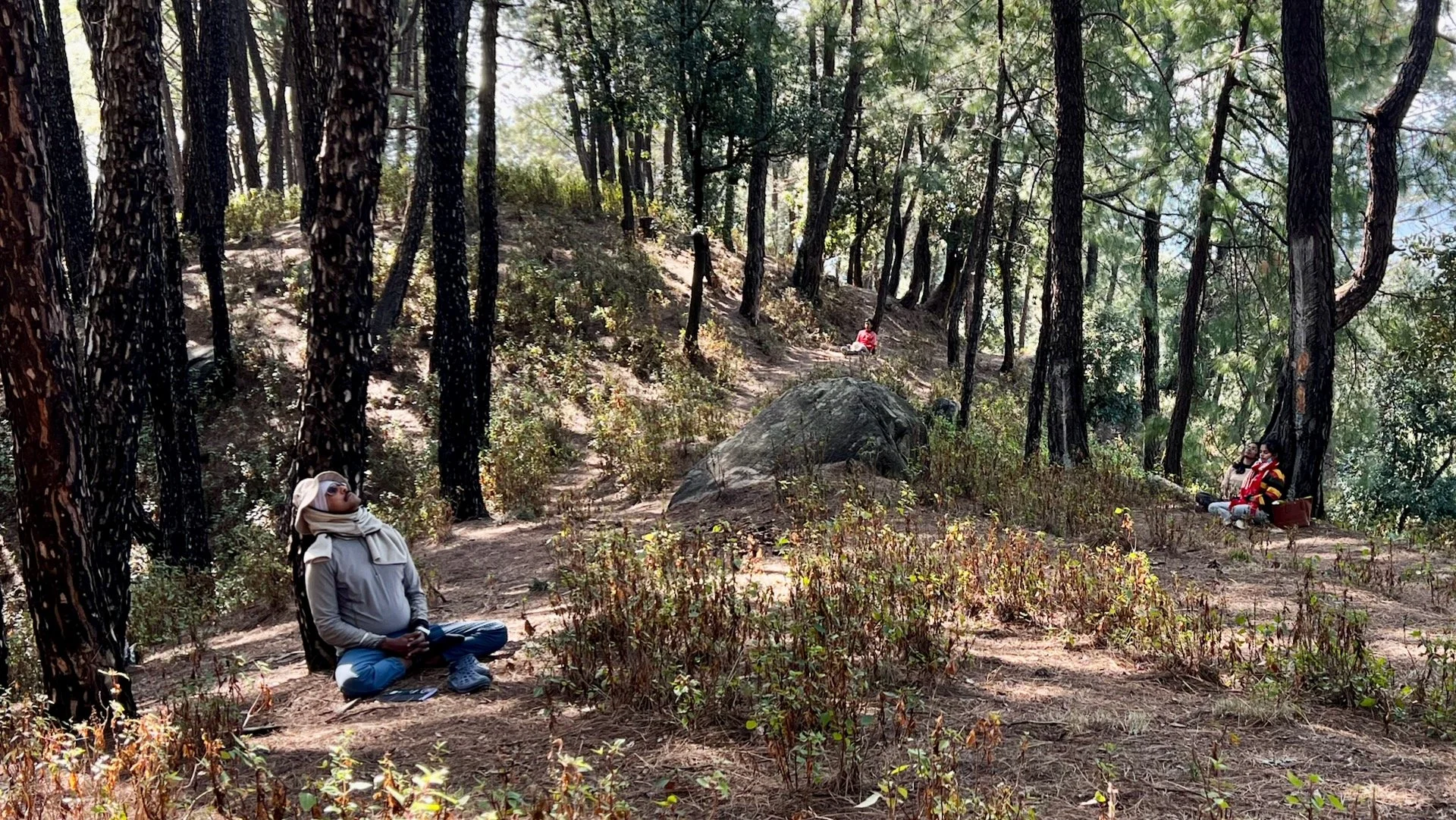Building a Better World
A collaboration between Dharmalaya Institute in India & Earthville Institute in the USA
structured as an ongoing series of workshops, courses & retreats
OVERVIEW
Dates: Ongoing, with rolling applications and multiple intake dates throughout the year (see events schedule for specifics)
Duration: Ongoing series of modular programmes, each of which has a different duration, with long-term participation highly recommended
Modular structure: A stream of workshops, courses, practicums, and retreats, allowing participants to join one or several or all of the programme modules, or to come and go, according to interest and availability.
Locations: There are three venues for participation:
In-person at Dharmalaya Institute (Himachal Pradesh, India)
In-person at Earthville Institute (Colorado, USA)
Remotely (online) for specific sessions
Program type: Modular format with mix-and-match in-person and remote participation options
Cost: Varies depending on module and venue (see below for details)
Prerequisites: It is very helpful to be fluent in English, to help you get the most out of this programme, but not strictly required.
Introduction to Building a Better World
Dharmalaya Institute is partnering with Earthville Institute in the USA to bring you ‘Building a Better World’, a unique long-term programme specifically for caring people like you who want to make a positive impact in the world. This precious opportunity is designed to empower you as an insightful, sensitive, and effective agent of change, and to help you develop your skills for making your inspirations into realities.
Each of us has our own unique contributions to make to this world, and if you’re reading this right now it is because you want to make a difference. But how can we make the best contributions we can make? Where do we focus, and how do we improve? How do we meet the human challenges of working with others effectively? How do we communicate successfully? How do we reach people? How do we inspire others to action? How do we make it work financially? How do we take care of ourselves along the way? And how do we do our work as sustainably as possible?
This programme will address all of these essential questions and more, supporting you to make greater beneficial impacts while also evolving as a caring human and a compassionate local and global citizen.
You will have opportunities to apply the skills and sensitivities you’ll be developing in the course in the real-world context of the work of Dharmalaya Institute itself (with the option of gaining experience at Earthville Institute in the USA as well). And, in that process, you will have the opportunity to be a part of the team that will shape the future of the Institute — a rare and precious opportunity to make a major impact.
This is a contemplative and embodied modular course that seeks to engage the whole of us in the exploration of responsible local and global citizenship and the arts of sensitive and effective changemaking.
EMPOWER YOURSELF TO TRANSFORM YOUR WORLD
Our world is changing quickly, in ways both helpful and harmful. We can’t fix everything, but we can’t keep breaking it either. Each of us can make a difference with informed compassion, reducing our harm footprint and optimizing our help footprint, and cultivating nurturing relationships in our communities.
How can we make the best possible impact with our lives? Whatever that may be for each of us, it starts by developing ourselves as sensitive humans, educating ourselves as responsible global citizens, empowering ourselves as effective change agents, and connecting with one another in creative collaborations for the greater good. And with that foundation, it continues with developing more of our natural capacities for sensitivity and creativity, and cultivating the skillful means to put compassion into action with greater effectiveness.
This course is designed to support you to gain insight and experience that will empower you to make your most helpful contributions to the world while also enhancing your own well-being.
Who is this programme for?
Anyone with a caring heart and a passion to do some good in the world, who aspires to empower yourself to make the best possible impacts in the best possible ways. Whether your passion is expressed in the fields of education, sustainability, the arts and creativity, nonprofit NGO work, social activism or altruistic entrepreneurship, this course is designed for you. For those who already have significant experience, this course will serve as an integrated personal and professional development programme to refine your skills and sensitivities and enhance your effectiveness. And for those who are either looking for a career change or just beginning to find your paths in this world, this course will meet you where you are and help you find fruitful and satisfying ways to focus your energy and gifts.
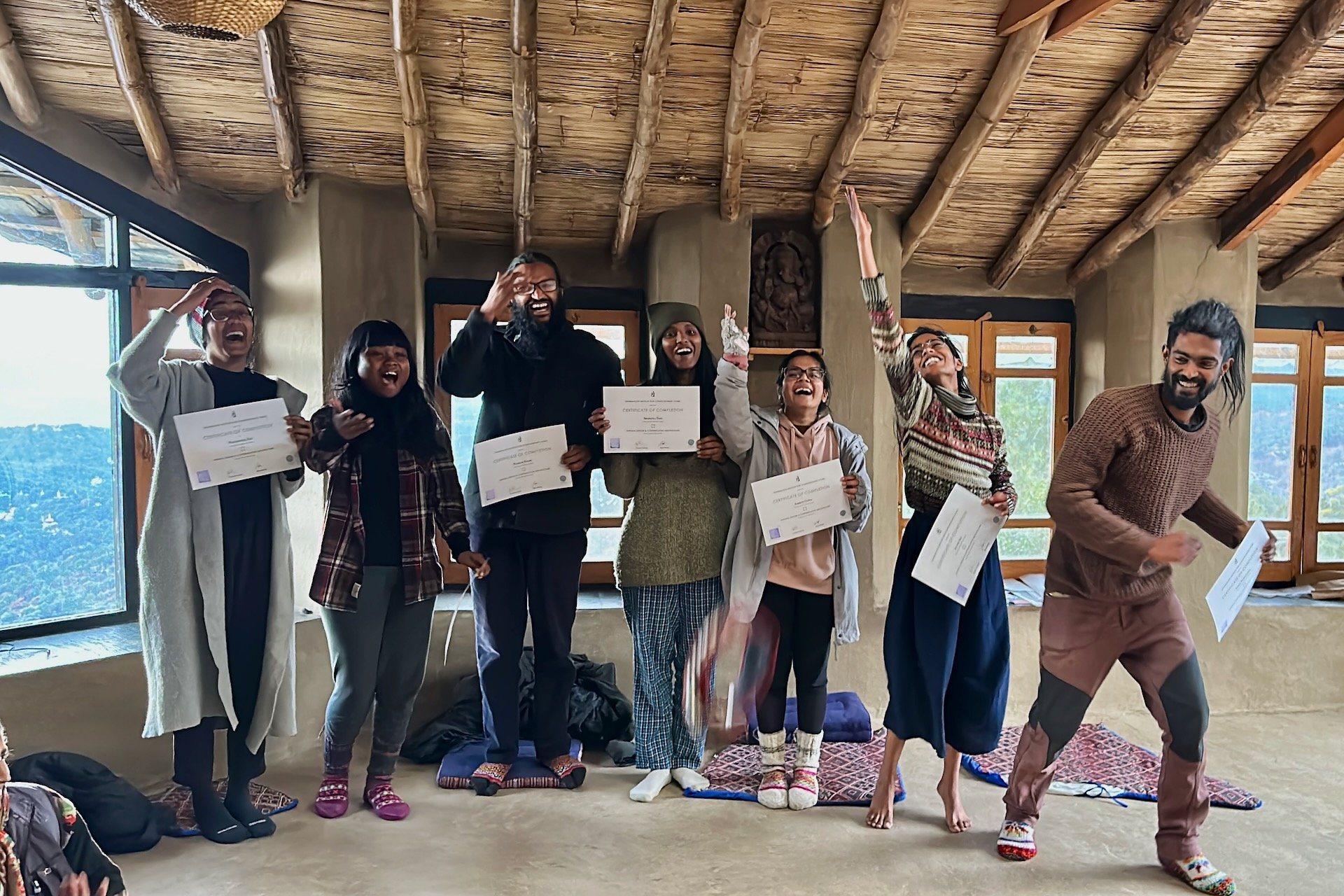
VIDEO INTRODUCTION
Here’s a short video that provides an introduction to Building a Better World, including brief interviews with Dharmalaya Institute’s cofounders.
“When making an aspiration, ask yourself: What does it mean to evolve? How would you like things to be? Then look at the nature of life realistically and identify where you actually have a choice. Then become an agent for change.”
THE SYLLABUS
Building a Better World integrates theory and practice, and supports participants to do the same through a diverse array of training exercises and real-world projects supported by a multidisciplinary syllabus of complementary studies to add depth, detail, dimension to the ideas and practices we’ll be exploring.
Five elements of effective compassionate changemaking
Building a Better World explores five essential elements that support us to make our best impacts:
Balanced sensitivity: Opening the heart and mind with understanding and empathy for the experience of all beings (including oneself)
Informed compassion: Discerning awareness of individual, local, regional, and global issues and their impacts — including the increasingly important skill of how to discern what’s really going on in a time when there’s so much misinformation
Skillful means: The practical wisdom of engaging effectively, the capacity to get results efficiently and elegantly — including communication skills, negotiation and conflict resolution, and moving from vision to reality
Sustainable thriving: Cultivating shared prosperity while preserving ecological balance, nurturing human flourishing in ways that support all other life on earth to flourish, too
Responsible global citizenship: All of the above elements come together to empower us to do our part, to heed the call of our times and circumstances and respond with insightfully conceived and effectively executed action to relieve suffering, bring meaningful change, and inspire others to do the same. In other words, putting informed compassion into action: making our best efforts to understand local and global issues, to act with sensitivity about them, and to change ourselves and our world for the better.
A key concept for this course: ‘Responsible Global Citizenship’
Today, more than ever before, life must be characterized by a sense of universal responsibility, not only nation to nation and human to human, but also human to other forms of life.
— H.H. the Dalai Lama
In this age of globalization and increasing interconnectedness, our lives impact one another’s — for better or for worse. Through learning, connection, and service, we can make the best possible impact on our world. Through informed, compassionate choices and actions, we can minimize our harm footprint and maximize the benefit we create for ourselves, for others, and for the planet.
To live without a sense of global responsibility is to turn away from the suffering of others and to waste many precious gifts we could give to the world and receive from it.
To live with a sense of global responsibility is to seek to understand and embrace the world as it is while working diligently and joyfully to make it better.
For a deeper look at Responsible Global Citizenship, see this article from the Earthville Network.
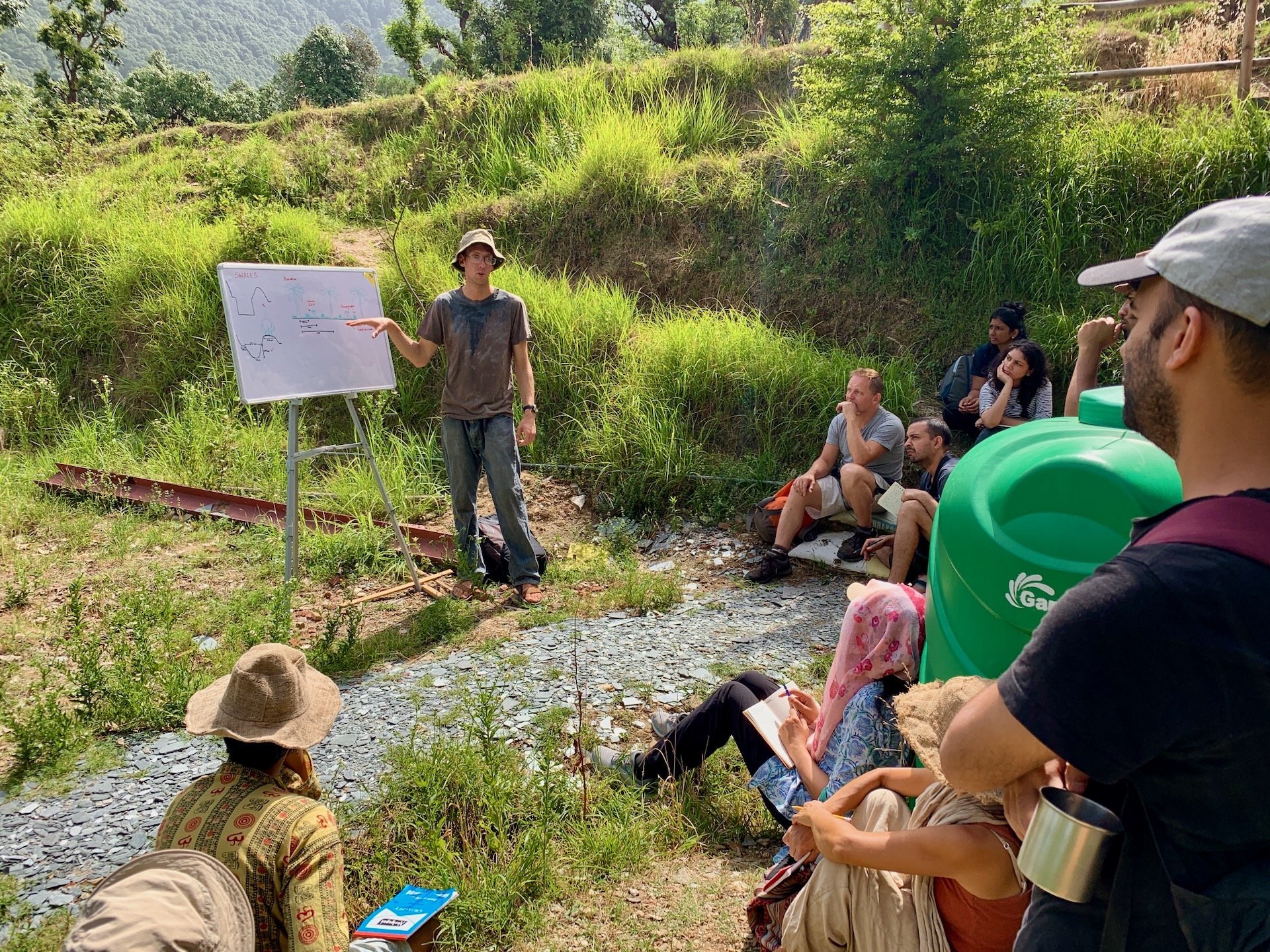
CORE CURRICULUM: WHAT WE’LL BE LEARNING
This course will provide an integrated, multidisciplinary approach to personal and professional development combining theory and practice, soft skills and hands-on work, for both inner and outer evolution.
Areas of learning & practice
Social issues and ways to work with them: A Himalayan village is a fertile setting for intersectional exploration of social issues including caste, gender, socioeconomic factors, and more. In the process, you'll gain insight into the lives of rural Himalayan villagers, including both their wisdom and their struggles, and insight into yourself as well.
Sustainability solutions: Explore the vast and deep concepts of permaculture, organics, voluntary simplicity, and more.
Contemplative approaches to the creative process: We will explore the creative process from a contemplative perspective — meaning how do we tune into the most sensitive, receptive, and creative parts of ourselves and use the creative process to deepen our intimate relationship with nature, with ourselves, and with one another.
Community, communication and collaboration: Living in community is a great opportunity to learn about ourselves and others, and to refine our skills for living, learning, and working together in harmony. (These skills bring benefit for a lifetime!) Practice deep listening, and other aspects of healthy, clear, respectful and productive communication. Be a harmonizing force, helping others interact smoothly and fruitfully. Explore possibilities for better teamwork.
Presentation: Gain experience and skill with public speaking and presenting information in ways that are clear, engaging and impactful.
Facilitation: Gain experience and skill with facilitating group processes such as discussions, sharing circles, learning exercises, and more, including the art of keeping participants engaged and supporting them to make discoveries.
Experiential education: Gain experience and skill with supporting others to learn by doing and reflecting. A good experiential educator doesn’t ‘teach’ as much as set the stage and provide skillful cues and nudges when needed to keep the learners engaged in their learning. Dharmalaya is a great place to learn and practice this approach and gain helpful feedback.
Project management: Each participant will have opportunities to manage several real-world projects on Dharmalaya Institute’s campus, and to receive support, guidance, and feedback to foster the development of greater skill, sensitivity, and effectiveness in this role. Likely possibilities for project-management opportunities include:
Administration: Co-managing various processes to keep the Institute running smoothly
Responsible consumption and waste management: Co-managing the design and implementation of solutions to help the Institute move ever closer to its zero-waste goal, which might include composting solutions, upcycling of waste, better sourcing to reduce waste, creative DIY solutions, etc.
Organic gardens: Co-managing the design and implementation processes for beautiful and thriving gardens utilising various traditional and innovative techniques to create healthy soils for high-yield food-growing.
Permaculture landscaping: Co-managing the design and implementation of campus developments integrating the built environment, the cultivated environment, and the natural environment.
Natural building: Co-managing non-technical aspects of eco-friendly construction and interior design projects, including reviewing plans for efficiency, finding the best sources for materials, etc.
Maintenance and repairs: Co-managing various processes to keep the Institute’s facilities and infrastructure in good condition.
Other projects that may arise from time to time.
Workshop facilitation: All of the above will come together in at least one opportunity to co-design and co-lead a workshop at Dharmalaya Institute, with the support the Institute’s faculty and staff at every stage. A precious opportunity!
Skills & capacities to be developed
Collaboration skills: Be a better team player, engaging with others more effectively in harmonious cooperation toward common goals; facilitating smooth and productive collaborations, cultivating positive team spirit, etc.
Management and leadership skills: Practicing a human approach to working in concert with other humans, leading by example and inspiring others to bring their best selves to do their best work.
Systems thinking: Seeing everything (including a project, an object, and ourselves and others) not as isolated ‘things’ but rather as systems within larger systems, all inextricably interdependent, and learning to approach design and problem-solving with that systems view.
Design thinking: A holistic way of seeing, understanding, contemplating, problem-solving, and creating, which considers design challenges from many angles and seeks solutions that work well in all respects.
Attention to detail: Focusing on quality of work with mindful presence, noticing the small things, and working joyfully to do work with a level of quality that pleases both oneself and those who will have the opportunity to enjoy the final product.
“Nature is trying very hard to make us succeed, but nature does not depend on us. We are not the only experiment.”
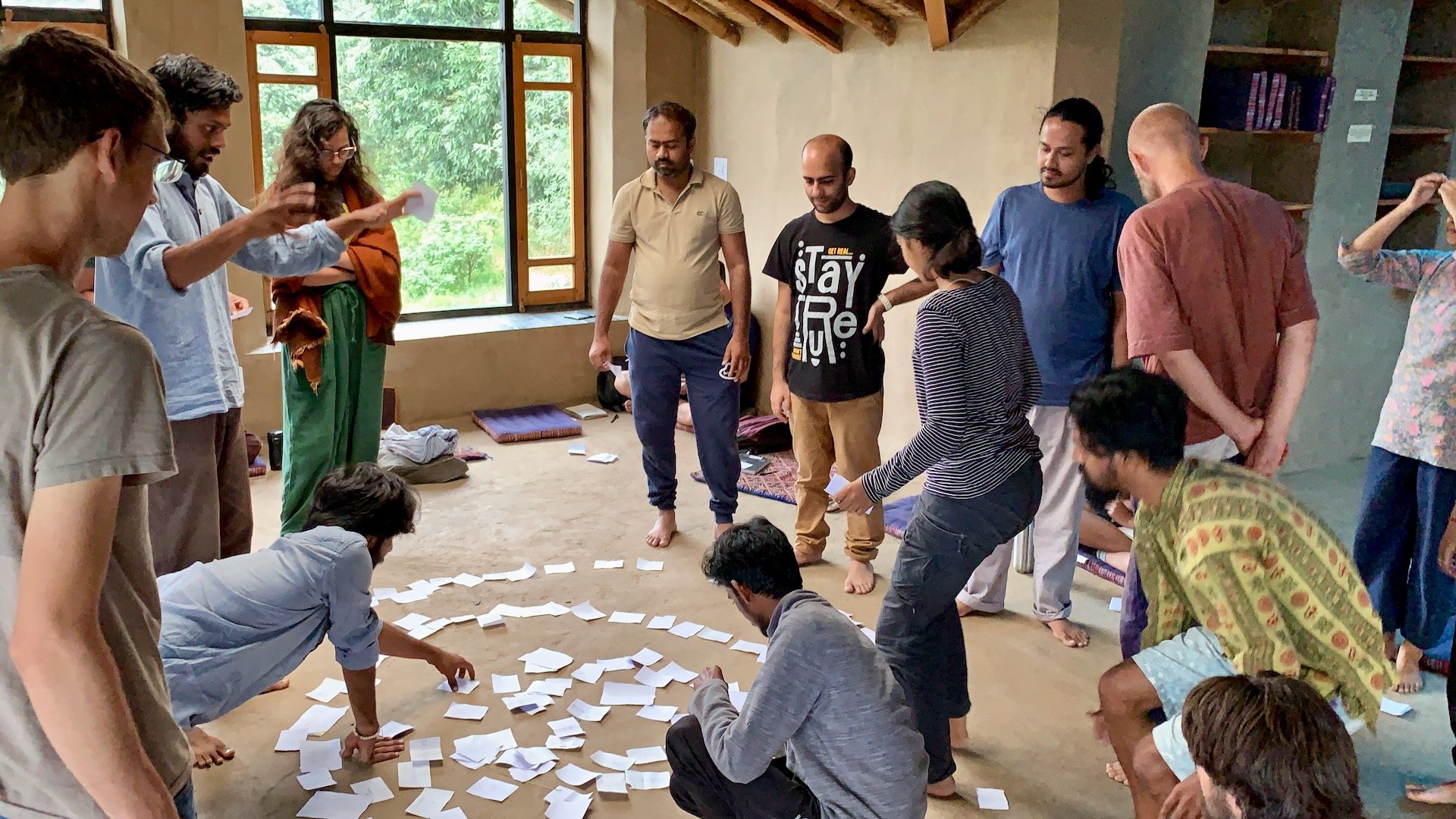
EMBODIMENT: THE SOFT SKILLS OF CHANGEMAKING
As many wise people have observed, to be effective and authentic as changemakers, educators, or leaders with values and ethics, we must ‘be the change’ and ‘walk the talk’. The evolution of the world toward the compassionate values and virtues we cherish begins with the embodiment of those values and virtues within ourselves.
Areas of learning & practice
Compassionate living: The practice of compassionate living touches all aspects of life: food, shelter, health, work, relationships, and more. We’ll make a holistic study of all of these areas and explore ways we can empower ourselves to minimize our harm footprints and optimize our help footprints.
Sustainable thriving: Growing and evolving as a compassionate and responsible local and global citizen; decreasing our harm footprint while optimizing our help footprint; living a deeply satisfying life while supporting others do the same.
Holistic health and well-being: Enjoy the benefits of a healthy and balanced lifestyle with daily yoga and meditation, wholesome plant-based meals (including learning to cook them!), and a nourishing rhythm of work, reflection, and rest.
Journaling: Maintaining a practice of regular reflection, and capturing our significant experiences and insights in writing, which is a major aid to learning and growth.
Group sharing: Practicing sharing our personal experiences with a group of trusted kindred spirits in a safe and mutually respectful environment. We share honestly and vulnerably, and hold space for others to feel safe to do the same.
Movement practice: Exploring the wisdom of the body through yoga and other conscious movement practices (e.g. instruction in the Taoist practices of chi kung may also be available for those with interest).
Stillness practice: Discovering our natural capacities for well-being and nuanced sensitivity through meditation and mindfulness practices, gaining direct experience of the positive impacts of meditation on both mind and body.
Finding balance: Cultivating a deeper, more personal, and more authentic experience of harmony and balance in our life and work through embracing a healthy and balanced lifestyle (including physical activity and proper rest, as well as healthy food).
Connection: Enhancing our innate awareness of the connectedness of all living things and applying it in our harmonious collaboration with our fellow participants and the Dharmalaya community, and thereby deepening our embodied understanding of the connectedness of all the elements of our programmes and facilities.
Insight: Contemplating the whys — the Big Questions of being human and finding purpose in life. These philosophical and meditative explorations will draw on traditional wisdom, including time-honoured texts and practices.
Skills & capacities to be developed
Conscious communication skills: Learning to communicate with greater sensitivity and effectiveness — understanding others better and learning to make ourselves better understood through mindful, clear, caring communication.
Keen observation: Cultivating an attentive presence that notices more than we ever have before, with greater openness, sensitivity and empathy. We develop our capacities for seeing, deep listening, and reflection.
Contemplative practice: Cultivating a daily meditation and movement practice, which helps to reduce stress, enhance functioning, inspire creativity, and improve the quality of our work and our connections with others.
Self-awareness: Seeing ourselves clearly, consciously acknowledging our gifts and our challenges, our strengths and weaknesses
Authenticity and integrity: Being real, honest, transparent, and true to our values and aspirations.
Responsibility: Being ever more conscientious about doing our part (and a little more) with joyful diligence, and becoming ever more reliable, accountable, and dependably mature.
Humility: Practicing courageous honesty about our own limitations and vigilance to guard against our own potential for arrogance or narcissism, while working to heal the wounds within us that give rise to false pride so that the virtue of humbleness can shine genuinely.
Balanced sensitivity: Developing healthy and balanced empathy, compassion, and the essential skills of deep listening and patient and nuanced observation — in relation so self, others, our work, and the world.
Creative process: Moving from vision to manifestation through effective, harmonious action.
Spaciousness: Tapping into our natural ability to feel peace, joy, and breathing room in any situation, and helping others enjoy the same experience.
“Good leadership means not limiting yourself due to lack of personal knowledge, skills, or resources, but being open to tapping into the well of collective knowledge and other resources around you, for the benefit of society.”
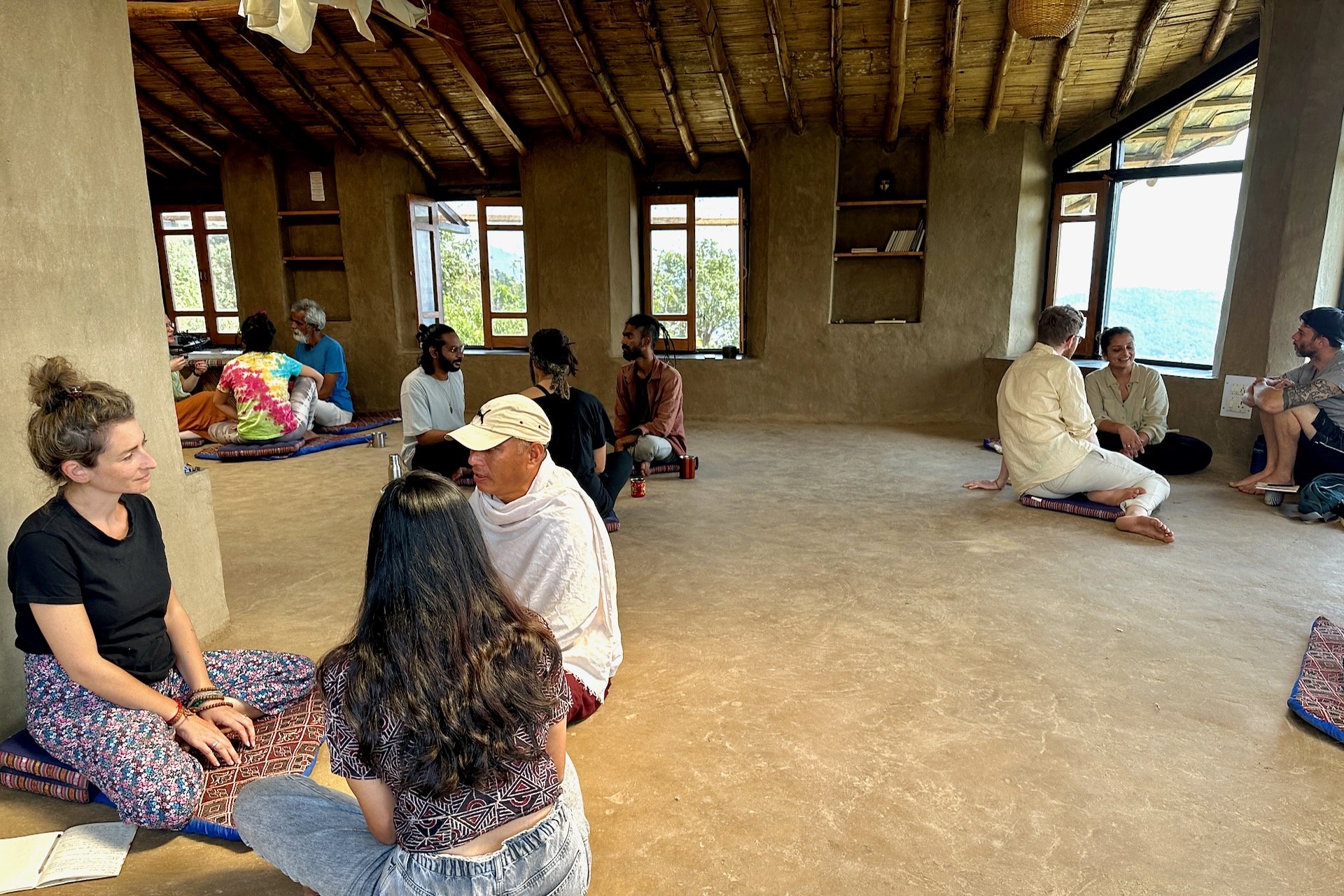
A Tale of Two Campuses:
The Dharmalaya + Earthville Partnership
Dharmalaya Institute in India and Earthville Institute in the USA are sister schools, both of which are part of the Earthville Network, a global community of local initiatives to create a more compassionate and sustainable world.
This partnership brings to Building a Better World a global, multicultural perspective, a breadth and depth of experience with projects that make a positive impact, and the potential for some participants based at one campus to participate in at least one module at the other campus (whether that’s an online course or an in-person programme). We encourage our participants to make good use of this opportunity for global learning and cross-pollination.
Recognizing that there are significant costs (in terms of carbon cost as well as financial expense) for international travel, we provide opportunities for meaningful learning and human connection online. And for those who are interested and able to travel internationally, both campuses welcome participants from the other.
This opens the possibility that, even if you are primarily based at Dharmalaya Institute for the programme, you may be able to participate in at least one module at Earthville Institute (or vice-versa). And in any case, there are opportunities for the participants at both campuses to connect (especially during the June through September period, when in-person activity at Earthville Institute is at its peak).
Dharmalaya Institute (Himachal Pradesh, India)
Earthville Institute (Colorado, USA)
STRUCTURE, SCHEDULE & COSTS
Modular course structure
What do we mean by ‘modules’ and ‘modular course structure’?
A ‘module’ is a single programme (such as a workshop, a retreat, a residential course, a practicum period, and so on) that anyone can apply to join on a one-off basis (whether or not they’re participating in the Building a Better World programme).
A ‘modular course’ is a longer-term programme that is made up of multiple modules.
Here’s a quick overview of the types of modules in the series:
Workshops: Intensive, hands-on plunges into a particular topic (e.g. organic gardening, natural building, design, etc.), usually combining theory and practice, and always with a contemplative flavour at Dharmalaya Institute.
Practicums: Most of our workshops are followed by a practicum period that supports the workshop participants to deepen their understanding and refine their new skills by working alongside our teams. There’s no substitute for extended hands-on experience, so putting in the hours doing the work is an indispensable part of learning.
Retreats: Sometimes we need to take a step back from all the intense activity in the outer world and give some loving attention to our inner world, cultivating a serene presence and deepening our contemplative practices (meditation, yoga, etc.).
Special projects: Periodically, there will be opportunities for participants to take on special projects as a deeper dive into a particular area of interest. These might be individual or group projects, including research, design, craft, building, writing, etc.
› More about Dharmalaya's course module system
The breathing rhythm that is created by alternating between these different types of modules, such as a somewhat more theory-focused intensive followed by a somewhat more action-focused practicum and a reflective retreat, is a proven system designed to support deeper integration of learning and to build knowledge and skill in a stepwise fashion with time to integrate each step.
Evaluation & transition
Learning = experience + reflection. Learning from the experiences of this programme will come not only during the experiences themselves but also in reflecting on them afterward, with a bit more perspective. And some of the best learning will come from evaluation processes in which each participant will take time to reflect on their experiences and do some journaling to connect the dots and identify the most valuable and impactful insights and inspirations. Participants will then share their self-evaluations with the programme facilitators and receive the benefit of their observations as well.
The final two weeks of our long-term programmes (“Integration Weeks”) are some of the most important, as they will provide opportunities for reviewing the entire experience, mining reflections and drawing connections, and a comprehensive evaluation process where much of the learning comes into focus. For departing participants, we will also give some attention to making the most of the transition from this programme to whatever may come next, and also fulfill the function of passing the torch to the newer participants, a function that is critical to a healthy community or society.
Levels of participation
Recognizing the diversity of needs, interest levels, budgets, and time considerations, we are offering five different levels of participation, ranging from a single one-off workshop or module (subject to limited availability) to full-time residential participation for a year or more.
One step at a time: Participate in one individual programme module (such as a single workshop or retreat, etc.), and then decide later whether you might like to participate in one or more additional modules in the series.
The come-and-go plan: If you already know in advance that you’d like to participate in the programme long-term but you also have other commitments that prevent you from staying at Dharmalaya Institute for a whole year continuously, you can follow the ‘come-and-go plan’, registering for whichever programme modules that you’re able to attend, and taking breaks in between to attend to other parts of your life. In this way, it would be possible to complete a full year’s worth of programme modules over a longer span of time. This would also provide the option to mix-and-match the modules that are most relevant to your interests.
One-year full-time (or longer): Course enrollment for one full one-year cycle is the recommended minimum for those who wish to put these concepts into practice. Each module in the series ends with review and evaluation and an individual meeting with faculty. Participants in the full-time one-year course receive extra time and attention.
One year plus Management Team experience (with option for certification): Those who have successfully completed the one-year minimum (whether that is one year continuously or stretched out over a longer time on the ‘come-and-go plan’) in the BBW programme will qualify for the precious opportunity to stay on for another six months (or longer), with your room and board provided by Dharmalaya Institute at no cost, to gain experience serving on Dharmalaya Institute’s Management Team, putting your learning into practice in the real-world environment of Dharmalaya Institute’s programmes, and to be a part of shaping and delivering future programmes at Dharmalaya Institute. For anyone who is interested in building a project or career that involves making a positive impact in the world, this is a truly extraordinary opportunity to work closely with the Founders Directors of Dharmalaya Institute and Earthville Institute. For those who have completed at least twelve months in the BBW programme and at least six months of Management Team experience, certification is available, as described in the ‘Certification’ section below. Those who complete at least six months of Management Team experience under this programme may qualify to apply for employment at Dharmalaya Institute (subject to limited availability of paid positions at any given time), or otherwise to continue working with the Institute on an even-trade (no money exchanged) basis.
Internship: If you already know that you’re inspired to participate in the programme for at least one year or more and you want to launch a project or career in this kind of work, you may wish to apply join the programme as an intern in the Internship in Sustainable Project Development (ISPD). Participating as an intern is like the one-year options 3 and 4 above, with the additional benefit of more individualized professional training and experience (including team management, project management, leadership and communication skills, material procurement, etc.) starting right from the first months. This one-year course completely satisfies Dharmalaya Institute’s requirements for the Internship in Sustainable Project Development (ISPD).
Certification
It is very rare for Dharmalaya Institute to provide certification for its courses, because our philosophy is that certificates are meaningful only in cases of sustained study and practice that result in measurable learning and skill. In the case of this course, certification is well justified by the exceptional degree of both academic study and real-world work experience. Certification is available only when all of the following conditions are met:
Participate in the Building a Better World programme for at least eighteen months in total (meaning being in residence at Dharmalaya Institute and/or Earthville Institute and participating fully in the programme modules for at least eighteen months in the aggregate, whether or not those eighteen months are continuous or spaced over time), including at least six months of Management Team (experience as described in the ‘Levels of Participation’ section above).
Complete all work and assignments satisfactorily.
Be able to demonstrate what one has learned, and to apply it.
Complete at least one contemplative retreat module (e.g. a meditation retreat, yoga retreat, etc.).
Uphold the shared values of Dharmalaya Institute and Earthville Institute at all times and support the well-being of all members of the community.
Engage fully in periodic evaluation process and final ‘Completion’ activities (including evaluation, succession, etc.).
For participants meeting all of the above criteria, a certificate will be issued jointly by Dharmalaya Institute and Earthville Institute .
Schedules & dates
Periodic start dates and flexible end dates
Because this is an ongoing modular series, it is possible to join at the start of any of the programme modules (i.e. workshops, courses, retreats, etc.) that are part of the Building a Better World Series (which will be mentioned on the programme information pages for all qualifying programmes). After completing your first programme in the BBW Series, you would have the option either to stay on at Dharmalaya Institute (or Earthville Institute) and continue with your experiential learning , or leave for a time and return whenever you are able to continue.
Note that Dharmalaya Institute’s schedule is year-round, while Earthville Institute’s schedule is seasonal (typically June through September).
Daily schedule: What will the days be like?
The day-to-day schedule will vary depending on program and location. The schedule for a typical day of our residential programs would include a morning contemplative practice session (yoga/meditation), community meals, morning and afternoon work/activity sessions, and sometimes an evening activity (depending on program and situation). See individual program and event pages for details.
Costs
Both Dharmalaya Institute and Earthville Institute are nonprofit educational organisations dedicated to making their programmes accessible to all by keeping costs as low as possible. Because BBW is a modular programme, the fees depend on which modules one chooses to participate in. Please see the individual programme information pages in Dharmalaya Institute’s events schedule and Earthville Institute’s events schedule for details on the costs of each individual programme module within the series.
SCHOLARSHIPS & DISCOUNTS AFTER ONE YEAR: Those enroled participants who stay at Dharmalaya Institute beyond the twelve-month minimum threshold will qualify to apply for Management Team experience (as described in the ‘Levels of Participation’ section above) and/or work-study scholarships to cover the full cost of your room and board, beginning in your thirteenth month, in exchange for taking on certain professional responsibilities at the Institute. Work-study participants would not be required to pay programme module tuition fees, making it possible to continue participating in all of the programme modules without payment beyond the first year, in exchange for helping with the running of the programmes and the Institute. In the case of those not applying for the Management Team experience or work-study options, the rate from the thirteenth month onward would be Rs 22,000 per month (as of January 2024, but subject to change due to inflation) inclusive of meals and shared accommodation at Dharmalaya Institute (note that rates for staying at Earthville Institute would be different, so see their website for details).
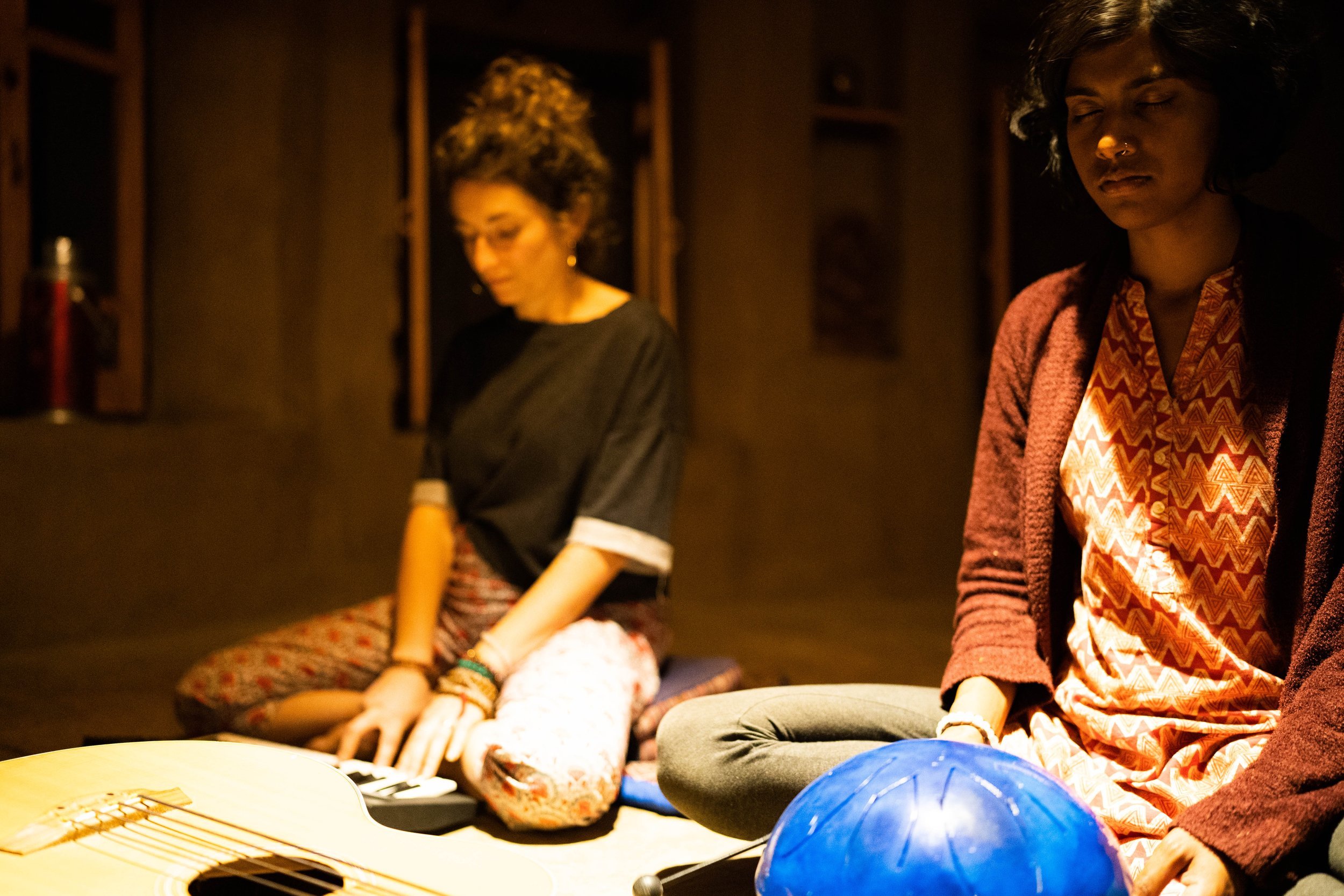
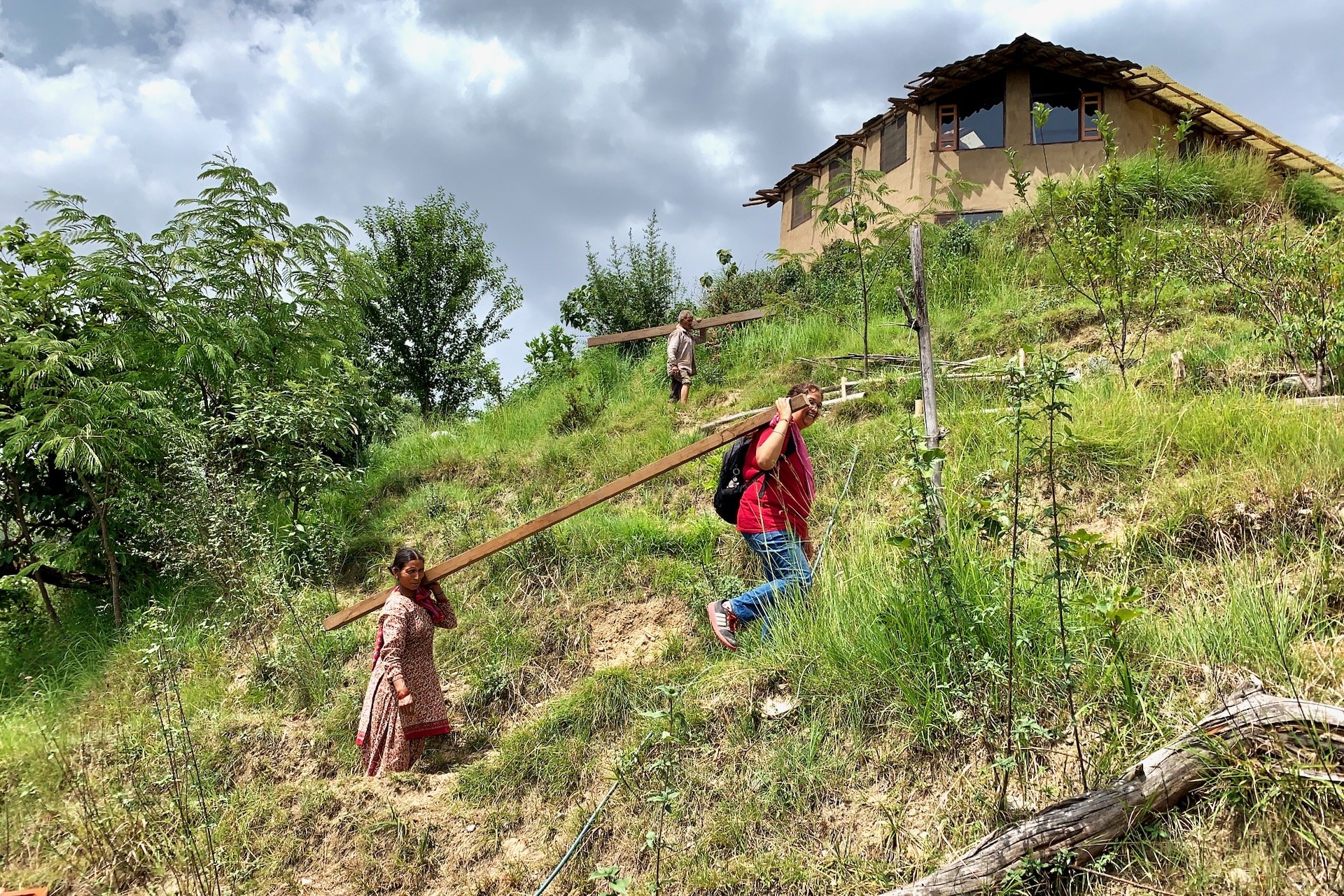
WHAT TO EXPECT FOR RESIDENTIAL PROGRAMMES
Two of the keys to happiness are: (1) to have realistic expectations to begin with; and (2) not to be too attached to those expectations, but rather to stay flexible as life unfolds. With that in mind, here are some of the things participants can expect (while remembering to keep a flexible attitude) during the residential modules.
Supportive routine: A daily rhythm of yoga asana practice, outdoor activities, discussions, and silent meditation time.
Natural simplicity: Rustic accommodations in natural earthen buildings or comfortable tents in a beautiful forest setting.
Yogic lifestyle: Clean and simple ashram-style lifestyle in which all our work is approached mindfully with a spirit of joyful service, and everyone contributes to the running of the place, including cleaning, washing dishes, etc.
Healthy food: Natural and mostly organic, purely vegetarian meals (100% plant-based, vegan). No junk food or packaged snacks, etc.
Digital detox: There will be no use of mobile phones or internet during group work/activity times so that everyone stays focused on the group tasks, and present with one another — and with our own experience. For those of us who are normally glued to our phones, it may take some adjustment at first but soon you’ll be amazed how much better you feel engaging with nature and good work with good people rather than the screen.
Emotional work: In a contemplative programme such as this where we’re exploring some of life’s big questions, it is normal for a range of emotions to come up, and for many this is a necessary part of the process. We encourage all participants to prepare yourselves to welcome whatever you and other might experience and hold a supportive space to move through it without judgment and learn all we can from it.
Physical activity: Some of the activities to be done as a part of the programme are physical (e.g. yoga asanas and karma yoga), and because of the location even walking up and down the hill requires some strength and energy, so it’s best to be prepared both physically and psychologically for a bit of exertion now and then. One key to happiness is to keep a very positive and enthusiastic attitude about such activity, knowing that you’re not only keeping yourself in good physical health but also making the world a better place in a small way, which makes it a joy.
Yoga & meditation
Our daily schedule includes time for daily practice of yoga and meditation, which are proven to be supportive for health and well-being, and also conducive to learning and joy. At various times of the year, instruction in meditation and yoga are provided by qualified members of the faculty. At other times, participants do their own practices. Instruction and guidance in other movement and meditation practices can be organized as well, depending on the needs and interests of the group. A regular commitment to contemplative practice supports all participants to deepen in their practice and get the most of out the experience.
Campus life & the experience of living in community
Most of our long-term participants tell us that experience of being a part of the Dharmalaya community, living and working together, is one of the best parts of the experience for them. We emphasize a culture of kindness and cooperation rather than selfishness and competition, and it’s great to live with kindred spirits in that kind of environment.
But, to be sure, this is also one of the most challenging aspects of a residential programme, because when we live together closely with other people for a long time, eventually challenges come up. This is actually a really great and precious thing if one embraces these experiences with a humble and sincere attitude, looking honestly at ourselves, wanting to learn and grow (instead of just wanting to be ‘right’). Dharmalaya maintains an environment in which everyone is supported to learn and grow in this way, and this kind of learning truly changes lives for the better, because few lessons are more valuable than those that help us understand ourselves and others better and learn to relate with others more sensitively and skilfully.
So one thing to understand is that learning to be a healthy part of a healthy community is one of the most important aspects of all of our residential programmes — and of compassionate living more generally — so that kind of inner work and social evolution should be something that appeals to you strongly if you’re thinking of applying for this programme. We’ll be spending a lot of time talking about it and asking you to self-reflect, journal, and share with others about your experiences, which benefits everyone.
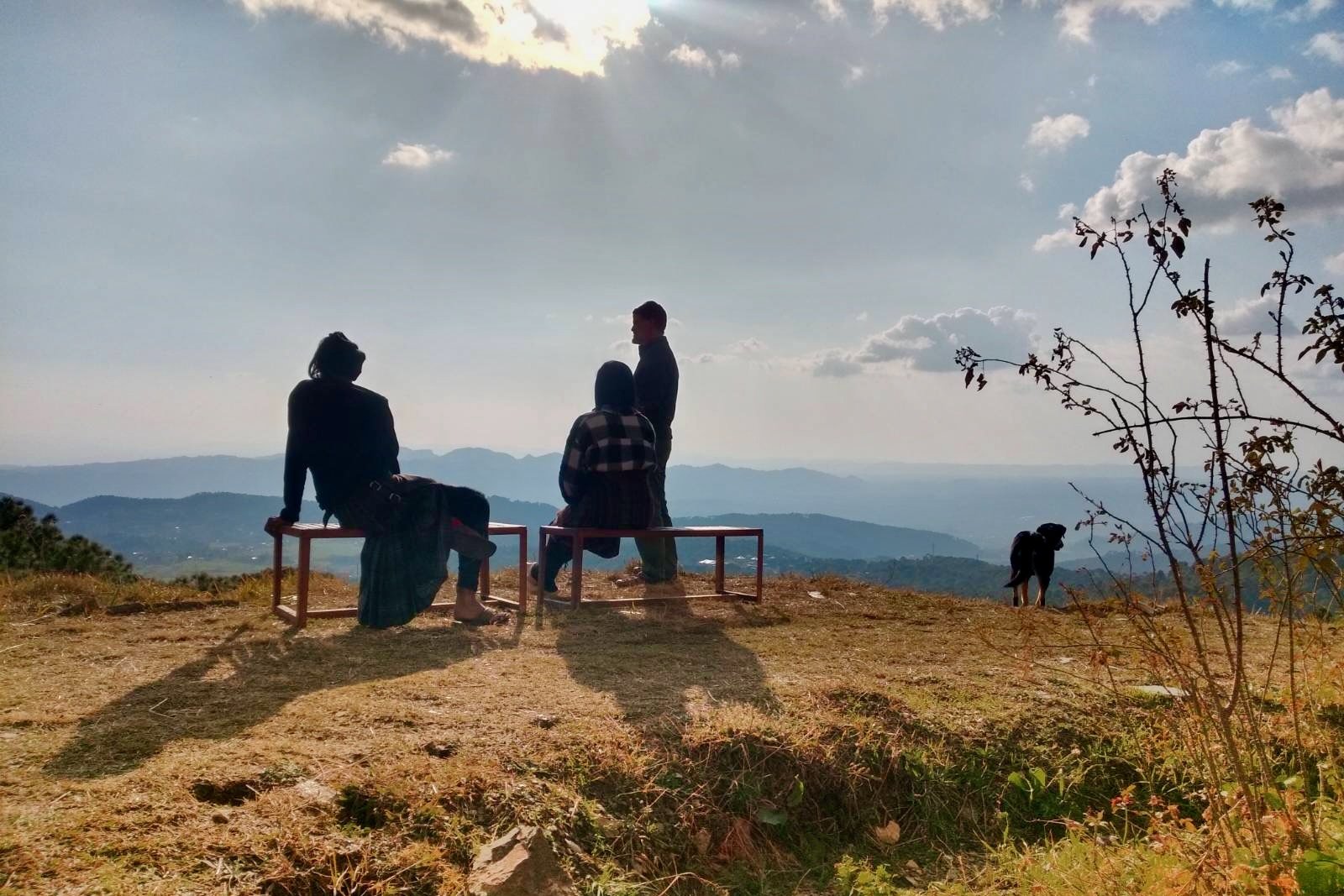
FACULTY
Visiting faculty and special guests to be announced.
Dharmalaya Institute’s local village staff and artisans will also play important roles in transmitting knowledge of sustainability-related traditions.
Note that for this course, our senior faculty members will be leading their respective aspects of the course through a combination of in-person and online sessions. During the periods when senior faculty members are not physically present on campus, programme sessions and activities will be facilitated by Dharmalaya Institute’s senior community members, with additional training provided by our local village staff. Throughout the course there will be regular engagement with the senior faculty, whether in-person or online.
APPLICATION PROCESS
Participation in this course is by application and subject to acceptance. Due to space limitations, we will be admitting only a small number of applicants with each batch. Therefore the application process will be even more selective than usual, to make sure we find the applicants who are truly best matched with the programme.
STEP 1 — APPLY: Submit the application form here on our website and wait for our reply. We evaluate applications in batches, so it may take a few weeks before your application is reviewed. We may email you to ask follow-up questions if necessary.
STEP 2 — INTERVIEW: If your application is selected for the shortlist, the next step will be for us to schedule a time to do an interview on a video call. During this interview, you’ll have the chance to ask whatever questions may be on your mind, and we’ll have a chance to get to know you a bit better. If necessary, there might be a second video interview for final candidates.
STEP 3 — ACCEPTANCE & DEPOSIT: If you are selected for the programme after your video interview, then at that time we will send you more detailed information about the programme and how to prepare for your time at Dharmalaya Institute. You will then have one week from the date of acceptance to make your nonrefundable deposit to hold your place in the programme. The minimum deposit is 50%, but it is also possible to prepay in full.
If you have any questions after reading all the material here on our website, feel free to contact us and we’ll be happy to address your questions.
We look forward to connecting with you!
PARTICIPATE: PROGRAMMES OVERVIEW | ONLINE COURSES | WORKSHOPS & RETREATS | IMMERSIVE COURSES (1 YEAR+) | INTERNSHIPS | VOLUNTEERING | DONATE



